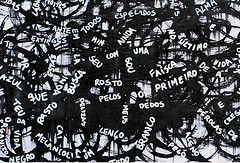Last week when I read an article in the New York Times discussing the first full-length Hebrew translation of Thomas Hobbes’ Leviathan—a translation which appeared only last month. “While the first two parts have long been available in translation, the third and fourth parts — in which Hobbes addresses religion and the state — had not appeared in Hebrew.”
I’m not a philosopher, but I have read parts of Leviathan, arguably one of the most important works of Western philosophy, so I was definitely intrigued by the discussion launched by several of the leading U.S. and Israeli scholars on the translation. Fania Oz-Salzberger, professor at the University of Haifa, at Monash University in Australia, and a distinguished visiting professor at Princeton University, correlates the lack of a complete translation of Leviathan to a lack of funds. In 1962, the Hebrew University Magnes Press published the first Hebrew translation of Leviathan, but the press “was not a rich publishing house, and neither were its customers.” The edition featured only sections Parts I and II and cut out, in addition to the more Hebrew-oriented sections, the wordier and more heavily footnoted sections.
Oz-Salzberger makes an interesting point regarding the new translation that concerns all areas of translation:
Times have changed. Since 1962, the Hebrew reading public has grown at least sevenfold. No other language has ascended, during modern times, from under a million speakers and readers to well over seven million. The new and full Hebrew edition of Leviathan shows how Israeli culture has come into its own: it can now afford, both financially and intellectually, a full Hebrew rendering of this whale of a text.
My question regarding translation at large is this, how much revisionism has occurred over the years in translated texts? Certainly the population swell of Hebrew readers makes this particular translation issue pertinent, but how many other languages and cultures have been slighted over the year due to simple problems like funding or an available market? While some regions like the Arabic region, face tremendous hurdles in regard to translation, others can afford to revisit key texts and clean house if necessary.
In some ways, translation is curation. Like an art curator, a translator’s job is never done. While the artist (author) may be long gone, or at least unable to translate (not everyone is Samuel Beckett!), the work still remains, and over time it may show wear and tear, inconsistencies—it may even be missing huge chunks of texts as in the case of the 1962 Hebrew translation of Leviathan. Like a curator, the translator then revisits the text and reworks it, restoring the text as accurately as possible to the original language version. So maybe dissertations and panel discussions don’t need to focus on strange topics like television and popular culture (although there’s nothing wrong with that)—you never know when the classics might resurface and need a whole new set of eyes to read, translate, and interpret.

